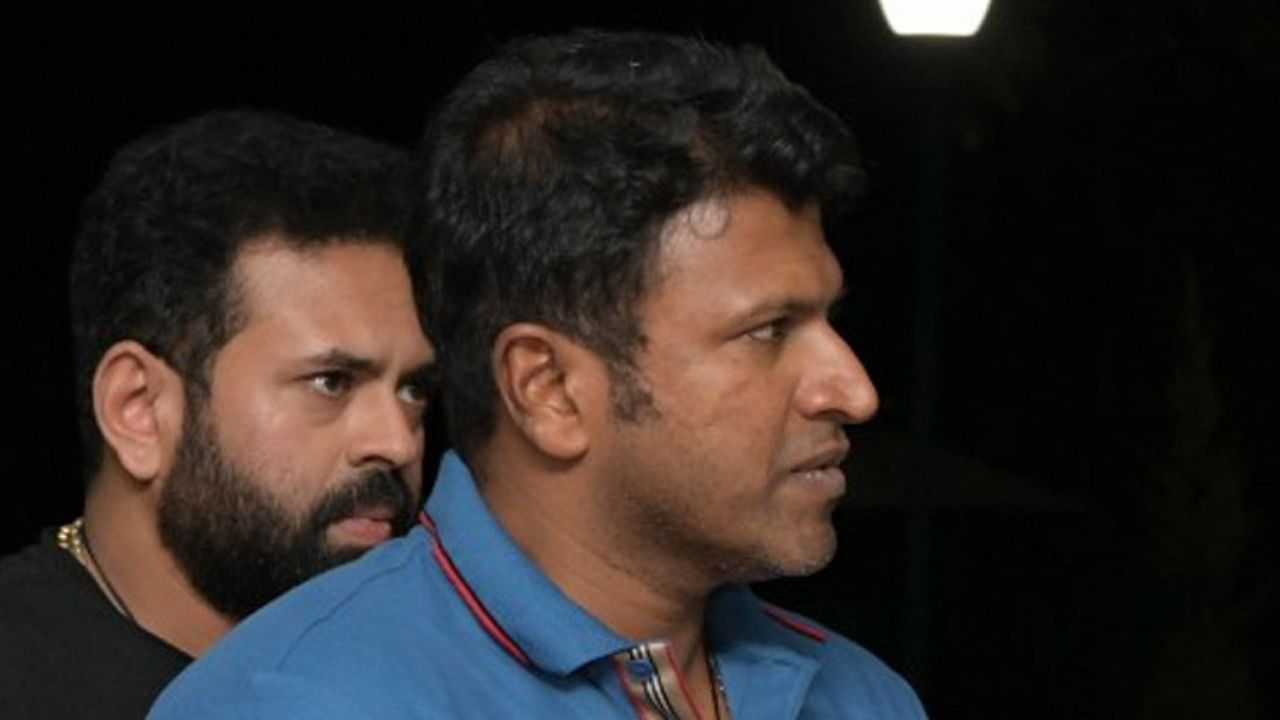
Kannada actor Puneeth Rajkumar’s sudden death on Friday came as a shock to his family and legion of fans. A question that popped up amid the mourning was: how could the star, physically fit and a fitness enthusiast, suffer a heart attack?
Doctors say that three factors may have led to his death: a genetic predisposition to cardiological problems, lack of regular follow-ups with cardiologists and the lack of access to a defibrillator which could have potentially saved his life.
The late actor was made aware of his susceptibility to cardiac problems during a social visit to Jayadeva Hospital on 27 September 2017, when doctors told him about this chink in his otherwise good health.
Read | Like father, like son: Puneeth Rajkumar donates eyes
Cardiologist Dr C N Manjunath, director of the Sri Jayadeva Institute of Cardiovascular Sciences and Research, said that a study — which the actor had ironically released as the chief guest during this visit — had shown that nearly 7.5% of all heart patients below the age of 45 have a genetic or family predisposition to cardiac problems.
“The risk factor profile for young versus old is different,” said Dr Manjunath.
“Smoking is a common factor between the two, but the incidence of diabetes and high blood pressure is more among older people.”
According to Dr Manjunath, in the study done by the hospital, 15% out of 2,000 young patients had a strong family history of heart problems.
“If any member of a family suffers a heart attack below the age of 50, that is the strongest indication of risk in other members of the family,” he added.
In the case of the Rajkumar family, Dr Jagadish Hiremath, Senior Cardiac Intensivist and Chairman AASRA multispeciality hospital, noted that two of Puneeth’s brothers and their father had artery-related problems. “It is very clear that Puneeth had genetic issues,” Dr Hiremath said.
Indians more vulnerable
Dr Devi Shetty, Chairman of Narayana Health, said Indians are more susceptible to cardiac problems than others.
“Indians are three times more vulnerable to heart problems than Caucasians because of a genetic predisposition,” Dr Shetty told DH, adding that “Indians develop heart attacks at a much younger age than Caucasians”.
This casts doubt over the commonly held assumption that people are healthy if they are physically fit.
Also Read | From Puneeth Rajkumar to Sidharth Shukla: Untimely deaths leave family and fans stunned
“You have all these youngsters exercising. But for me, there is no value in anybody past the age of 35-40 saying that they are perfectly fit and can run 10 miles unless there is an ECG report, echocardiogram and cardiac-CT to testify that they are normal,” Said Dr Shetty.
This is because, Dr Shetty said, “45% of Indians suffer from silent ischemia - they can suffer a massive heart attack without even being aware of it”.
No shock machine
Experts noted that soon after Puneeth suffered a heart attack, he underwent a condition called ventricular fibrillation. During that critical time, a shock from a defibrillation machine needs to be delivered within four minutes of the event to save the patient.
According to Dr K S Ravindranath, a senior cardiologist at Jayadeva, the cause was the rupturing of cholesterol ulcers (otherwise called plaques) inside coronary arteries.
“Sudden high-intensity exercises sometimes cause stress on the arteries, which ruptures the plaques, rapidly clogging up a normal artery, resulting in a heart attack,” Dr Ravindranth said.
Also Read | Thousands flock Bengaluru's Kanteerava Stadium to pay tribute to Puneeth Rajkumar
Sufferers of silent ischemia have no warning at all, said Dr Manjunath.
“They have zero blockage until the plaques rupture and clog the artery within minutes. The unfortunate patients develop ventricular fibrillation, which causes their hearts to cease pumping blood. A shock from a defibrillation machine needs to be delivered within four minutes of the event,” he said
According to sources, Puneeth Rajkumar initially suffered a heart attack on Friday morning and subsequently went into ventricular fibrillation while being transported by car to Vikram Hospital on Cunningham Road.
Cardiologist Dr P Ranganath Nayak, who was one of the receiving doctors at the hospital, said, “Puneeth was completely unresponsive when he arrived. There was no brain activity.”
A source later said that if Puneeth had been in an ambulance with a shock defibrillator, he could have been saved.
“A DC shock is enough to revive them and they go on to lead healthy lives for the next 30-40 years. So, timing is important,” Dr Manjunath said.